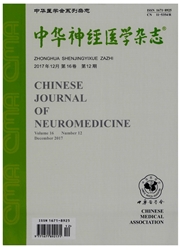

 中文摘要:
中文摘要:
心房颤动是临床常见的持续性心律失常,发病率随着年龄增加而逐渐升高,致死和致残率高。目前对心房颤动的治疗仍然缺乏有效的措施,其根本原因是心房颤动发生的分子机制未完全明确。新近的研究发现,炎症分子标志物如C反应蛋白、白介素、肿瘤坏死因子、热休克蛋白等在心房颤动的心房结构重构中扮演了重要角色,而抗炎在心房颤动的临床治疗中发挥着重要作用。现就近年来炎症相关心房颤动的发生和临床治疗进展进行综述。
 英文摘要:
英文摘要:
Atrial fibrillation is a common and persistent arrhythmia. The incidence increases with the increasing of age, and the mortality and disability are high. At present, there is still a lack of effective measures for the treatment of atrial fibrillation. The underlying reason is that the molecular mechanism of atrial fibrillation is not completely clear. Recent studies have found that inflammatory markers such as C- reactive' protein, interleukin, tumor necrosis factor, heat shock protein involved in atrial remodeling. The article reviews the recent progress in the oeeurrence and clinical treatment of inflammation related atrial fibrillation.
 同期刊论文项目
同期刊论文项目
 同项目期刊论文
同项目期刊论文
 Microsomal triglyceride transfer protein gene-493G/T polymorphism and its association with serum lip
Microsomal triglyceride transfer protein gene-493G/T polymorphism and its association with serum lip PPARD +294C overrepresentation in general and long-lived population in China Bama longevity area and
PPARD +294C overrepresentation in general and long-lived population in China Bama longevity area and COMT Val158Met polymorphism is associated with blood pressure and lipid levels in general families o
COMT Val158Met polymorphism is associated with blood pressure and lipid levels in general families o Meta-analysis of the association of NOS3 Gene rs1799983 polymorphism with Alzheimer disease in 15 po
Meta-analysis of the association of NOS3 Gene rs1799983 polymorphism with Alzheimer disease in 15 po .Interactions between social/ behavioral factors and ADRB2 genotypes may be associated with health a
.Interactions between social/ behavioral factors and ADRB2 genotypes may be associated with health a Stimulation of Insulin Signaling and Inhibition of JNK-AP1 Activation Protect Cells from Amyloid-&be
Stimulation of Insulin Signaling and Inhibition of JNK-AP1 Activation Protect Cells from Amyloid-&be Gene polymorphism associated with cognitive decline in Chinese patients with late-onset Alzheimer&rs
Gene polymorphism associated with cognitive decline in Chinese patients with late-onset Alzheimer&rs Haptoglobin 2-2 Genotype Is Associated with Increased Risk of Type 2 Diabetes Mellitus in Northern C
Haptoglobin 2-2 Genotype Is Associated with Increased Risk of Type 2 Diabetes Mellitus in Northern C 期刊信息
期刊信息
